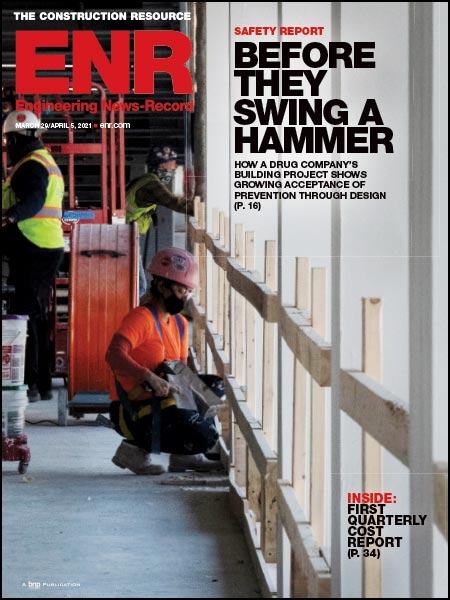 |
| Bush at a Jacksonville, Fla. rally. (Photo courtesy of Bush-Cheney '04 Inc.) |
With President Bush headed for a second term and the Republicans winning larger majorities in the Senate and House, construction industry officials foresee a continued pro-business stance in Washington, but they also expect increased pressure on spending for infrastructure and other domestic programs.
Stephen Sandherr, CEO of the Associated General Contractors, says the election results amount to "really positive news on the regulatory and tax side." He says that "this President is going to continue to pursue a pro-growth economy with the understanding that taxing businesses, small businesses and individuals is not the right way to grow the economy." Nick Yaksich, vice president for government relations with the Association of Equipment Manufacturers, cites the industry's long-desired permanent repeal of the inheritance tax and says that with the expected 2005 lineup in Washington "maybe some of these issues can actually see the light of day
AGC's Sandherr also expects the administration to continue its generally pro-business stance on regulatory matters. "We think that their common-sense approach on environmental and safety regulation...is good for our industry," he says.
Steve Hall, the American Council of Engineering Companies' vice president for government affairs, views Bush's apparent re-election "as a positive, opening new opportunities on issues such as tort reform, which is a key priority for our industry, and other business/regulatory type of issues." He adds, "I think the same sentiment holds true for...the new makeup of Congress."
|
But as Bush and Congress face a large federal deficit, industry officials realize they have a struggle ahead--battling for federal funding to feed construction markets. Sandherr says, "The focus in the second term is going to be reducing the deficit. And that's going to have an impact on domestic spending across the board. I don't expect that construction programs that we care about are going to be immune from that." That pressure could affect annual appropriations measures and the still-unfinished multi-year surface transportation bill, which is far and away construction's main legislative priority.
ACEC's Hall agrees that spending will be a difficult issue. "Clearly," he says, "we still have a lot of work to do with this administration and with this Congress on public investment in infrastructure. That's the one area that needs improvement and that's something we're going to have to work on, particularly as we do the highway bill next year."
On the transportation measure, Hall says that "there are political pressures that will be in play" to set its funding levels much higher than Bush would desire in order to get it through Congress. "But yes," Hall says, "the budgetary pressures will still be there."
With the White House likely to seek to hold down the size of the transportation bill, AEM's Yaksich says, "I think we have to look at some creative financing," such as bonding. He says that "the needs are still there, but I think we're already hearing...further tax cuts." That would make it difficult to gain increased transportation spending through higher motor fuel taxes, he says.




